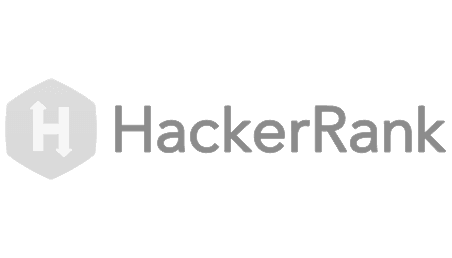AI Support Guides
Apr 24, 2025

Deepak Singla
IN this article
We’ll break down how to seamlessly integrate AI with HubSpot to level up your support automation. From setting up smart triage and real-time FAQ deflection to implementing predictive triggers and AI-generated workflow actions, you’ll get a step-by-step playbook for scaling customer service without scaling headcount. Whether you’re using HubSpot’s Breeze or layering in Fini for deeper automation, this guide will help you unlock faster response times, smarter workflows, and a more consistent customer experience.
Support teams today face growing pressure: respond faster, deliver personalization, and scale service—without burning out. While HubSpot offers a powerful foundation for managing customer relationships and service operations, the next step in support evolution lies in AI integration.
By combining HubSpot’s workflow and CRM capabilities with AI-driven automation, you can shift from reactive support to a proactive, intelligent, and scalable support engine. This guide breaks down how to get started and what to expect from an AI-powered HubSpot experience.
Why AI + HubSpot Is a Smart Move for Modern Support Teams
HubSpot provides ticketing, CRM data, and automation tools—but many processes still rely on human intervention. Tickets are triaged manually, repetitive questions clog up agent bandwidth, and personalization requires constant effort.
AI changes that.
Here’s what integrating AI into HubSpot enables:
Instant ticket triage based on content, tone, and history
FAQ deflection across live chat, email, and help widgets
Proactive support triggered by CRM signals and product usage behavior
Consistent tone and faster response without increasing headcount
It’s a shift from managing problems to preempting them—from scaling teams to scaling intelligence.
What You Can Automate Today with AI Inside HubSpot
When connected with the right AI tools, HubSpot becomes a central command center for intelligent automation. Here’s what you can automate immediately:
Ticket categorization: Auto-tag by topic, urgency, and customer type
FAQ resolution: Deflect onboarding, billing, and account questions
Auto-populated ticket fields: Extract key details from messages to reduce agent input
Predictive support: Trigger help content or follow-ups based on behavioral signals (e.g. failed logins, churn risk)
Post-resolution flows: Launch surveys or escalation sequences after resolution or handoff
These automations reduce manual effort and deliver faster, more personalized customer experiences.
Step-by-Step: Integrating AI Support Agents with HubSpot Workflows
While HubSpot provides robust workflows and CRM capabilities, the real power emerges when you embed AI support agents into your live chat, email, and ticketing flows—directly connected to your HubSpot environment.
Here’s how to make that integration work effectively:
Step 1: Connect Your AI Agent to HubSpot
Start by ensuring your AI support platform integrates with HubSpot’s APIs:
Sync ticket pipelines to allow your AI agent to create, tag, and update tickets automatically
Connect CRM records to give your AI agent access to user context (e.g., lifecycle stage, subscription plan, previous conversations)
Set up webhook or API-based triggers for live events like form submissions, property changes, or churn-risk signals
This creates a two-way connection where your AI agent can both read and write to HubSpot in real time.
Step 2: Define AI Agent Entry Points
Decide where your AI agent will engage users:
Live chat on high-traffic or conversion-critical pages (e.g., pricing, checkout, dashboard)
Embedded email replies for common support tickets
Contextual help widgets inside your product interface
Ticket creation flows that allow the AI to prefill fields before routing to your team
Entry points should match high-volume or high-friction areas in your support journey—places where speed and consistency matter most.
Step 3: Automate Workflows with CRM + AI Triggers
Once integrated, your AI agent can trigger HubSpot workflows based on interaction outcomes:
A user asks a question → AI resolves it → CSAT survey triggered
AI detects a complex issue → creates ticket → sets priority and tags in HubSpot
User expresses intent to downgrade → AI flags CRM for lifecycle intervention
The AI agent doesn't just respond—it becomes an intelligent connector between the customer experience and internal systems.
Step 4: Monitor and Continuously Improve
Track core support metrics and use the data to improve agent logic and HubSpot flows:
Ticket deflection rate (how many issues the AI resolves without escalation)
First response time
Resolution time for AI-initiated vs. human-handled tickets
Escalation reasons (low confidence, sentiment, user request, API limitations)
Regularly review transcripts and conversation summaries to fine-tune your AI agent's behavior, update fallback paths, and improve automation logic.
Example: Automating Support Flow with AI + HubSpot
A customer emails with a billing concern
The AI classifies it as a subscription downgrade
It replies instantly with a personalized message, pulled from your billing policy
The issue is resolved. A CSAT survey is triggered
If the user responds with follow-up concerns, the AI escalates seamlessly
This is support that’s fast, consistent, and adaptive—powered by CRM context.
Benefits for Small and Midsize Teams
For resource-constrained teams, the gains are even more pronounced:
Operational Efficiency: Automate triage, resolution, and routine communication
Better Personalization: Use CRM data to tailor replies without manual intervention
Content Optimization: Surface relevant help articles or offers based on user behavior
Smarter Campaigns: AI can improve lead scoring, outreach, and follow-ups by analyzing interaction history
Search Visibility: Use AI to optimize content for SEO based on search trends and knowledge gaps
The result: less overhead, higher productivity, and faster support—all from within your existing HubSpot ecosystem.
From CRM to Intelligent Support Engine—with Fini
Integrating AI with HubSpot unlocks serious potential—but it’s the quality of your AI agent that determines the impact.
That’s where Fini comes in.
Fini connects directly with your HubSpot account to:
Automate triage and ticket tagging
Respond to FAQs across chat, email, and web
Escalate based on confidence, sentiment, or customer request
Deliver responses in your brand’s voice, with real-time CRM context
Trigger workflows based on user behavior—like subscription changes or missed onboarding milestones
With built-in learning loops, adaptive routing, and advanced tone control, Fini helps teams transform HubSpot into a smarter, faster, and more scalable support platforms.
Ready to bring intelligent automation to your HubSpot ecosystem? Book a Fini demo today.
More in
AI Support Guides
Co-founder














